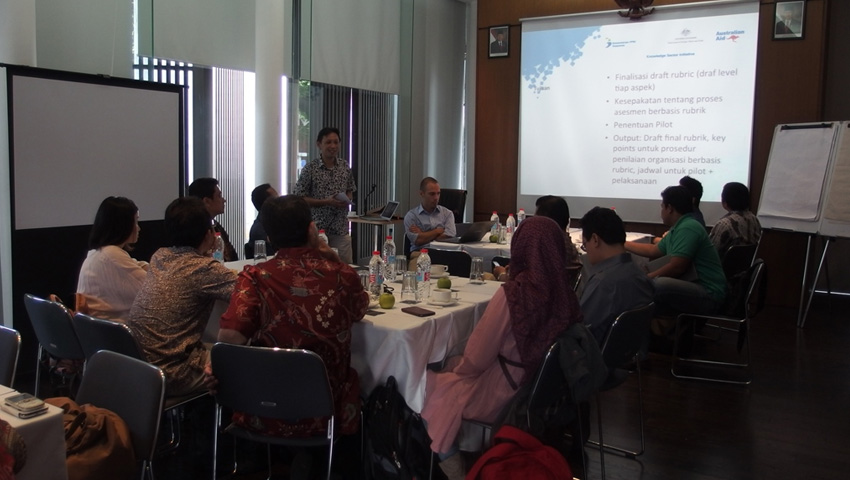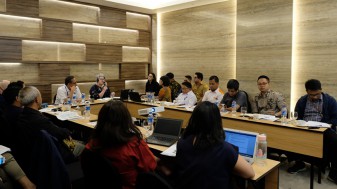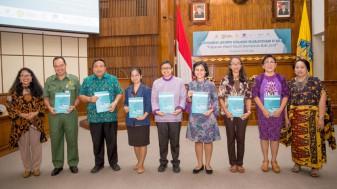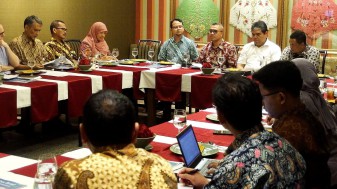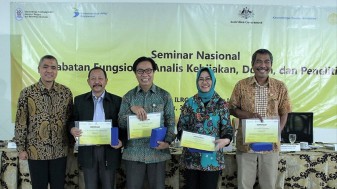KSI recently held a two day workshop to enhance research institute partners’ strengths in conducting organisational assessment and to finalise the development of rubric, a tool to conduct performance assessment of organisation. Held in Jakarta from 19-20 August 2014, eight research institute partners participated at the rubric based organisational assessment workshop.
Based on the KSI Monitoring & Evaluation Plan, rubric is selected to provide baseline data for the programme and to encourage uniformity in the way partners conduct organisational performance assessment. It strengthens the partners’ capacity to synchronise a capacity development strategy with its existing priorities and resources.“The rubric development workshop for organisational learning conducted by KSI has been one of the best practices in efforts to strengthen research organisation capacity. The rubric’s method is very interesting in that it reflects a familiar concept in the educational environment, especially in the context of individual learning assessment. Our organisation has a mission to build the capacity of Indonesian institutions in health policy. This workshop has inspired us to adopt similar approaches and has also become a forum for knowledge sharing between institutions that will reinforce networking among KSI partners”, said Dr. Yodi Mahendradhata, M.Sc, Ph.D, Director of the Center for Health and Management, Faculty of Medicine, Gadjah Mada University.
During the workshop, the partners worked in three small groups focusing on different rubric elements:
- Group 1: “Research Output”
- Group 2: “Vision and Strategy”, “Impact”, and “Uptake”
- Group 3: “Organisational Management”, “Technical Management”, and Human Resource Management”
KSI had also conducted several working group discussions with these partners based on their organisational self-assessment as a preparation to the workshop. In the discussion, the Evaluation and Organisational Learning (EOL) team of KSI also explored the rubric approach using the five levels of “success” that show evidence of direct impact and policy change. Introduced by Ingie Hovland of the Overseas Development Institute, these five levels are:
- Strategy and direction: The basic plan followed in order to reach intended goals
- Management: The systems and processes in place to ensure that the strategy can succeed
- Outputs: The tangible goods and services produced
- Uptake: Direct responses to the work
- Outcomes and impacts: Use of communication to effect changes in behaviour, knowledge, policy or practice
As a follow up of the workshop, two research institute partners namely SMERU and Article 33, agreed to pilot the complete rubric exercise on September 3 and 4 for baseline purpose. The pilot also facilitated them to assess their organisational capacity and synchronise rubric with other assessment tools they may have been using. Other partners will also be conducting the rubric based organisational assessment for baseline by end of November 2014.
Topic : capacity development, workshop, organisational performance

